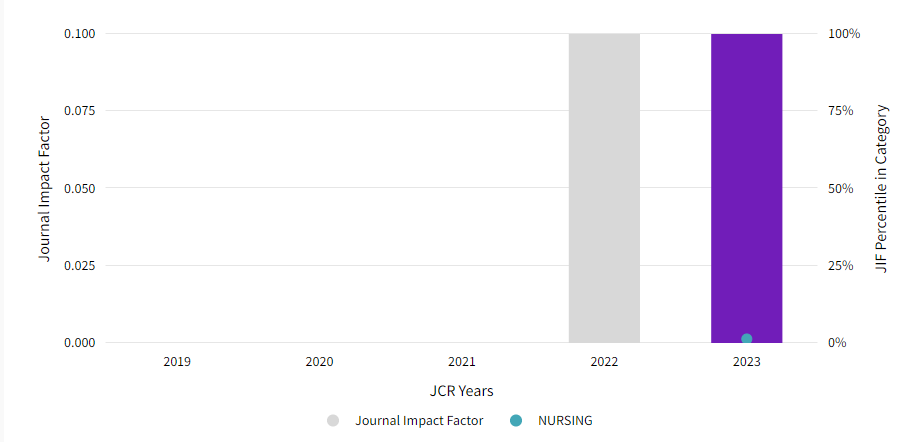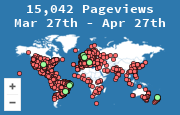Declaration of Ethics and Best Practice in Publications
The RPCFO Publication Ethics and Malpractice Statement is largely based on the guidelines and standards developed by the Committee on Publication Ethics (COPE). The relevant duties and expectations of the journal's authors, reviewers, and editors are described below.
- Responsibilities of Authors
By submitting a manuscript to RPCFO, the author(s) warrant that the manuscript is their own original work and that it has not been previously published nor is it under consideration for publication elsewhere. They also warrant that the sources of any ideas and/or words in the manuscript that are not their own have been appropriately attributed through appropriate citations and/or quotations. An author should not publish manuscripts describing essentially the same research in multiple journals or publication venues. Such redundant publication is generally considered unethical publishing behavior and, if discovered, may result in the rejection of a manuscript under consideration or the retraction of a published article. Authors of manuscripts reporting original research should present an accurate account of the work performed, accompanied by an objective discussion of its significance. The underlying data should be represented accurately in the manuscript. The manuscript should contain sufficient detail and references to allow others to replicate the work. Fabrication of results and the making of fraudulent or knowingly inaccurate statements constitute unethical behavior and may be grounds for rejection or retraction of a manuscript or published article. When the manuscript reports software, hardware, or other commercial products, the authors should include a statement at the beginning of the manuscript declaring no conflict of interest or describing the nature of any potential conflict. All sources of financial support for the research should also be disclosed in the manuscript. The author(s) of a manuscript agree that if the manuscript is accepted for publication in RPCFO, the published article will be copyrighted using Creative Commons “Attribution-NonCommercial-ShareAlike 4.0 International (CC BY-NC-SA 4.0)”. This license allows the author(s) to retain copyright while also allowing others to freely copy, distribute, and display the copyrighted work and derivative works based on it, under certain specified conditions. Authors are responsible for obtaining written permission to include any images or artwork for which they do not hold copyright in their articles or to adapt such images or artwork for inclusion in their articles. The copyright holder must be explicitly informed that the image(s) or artwork will be freely available online as part of the article under a Creative Commons license (CC BY-NC-SA 4.0). The names of authors should be listed in the article in the order of their contribution to the article, and all authors take responsibility for their own contributions. Only individuals who have made a substantial contribution should be listed as authors; those whose contributions are indirect or marginal (e.g., colleagues or supervisors who reviewed drafts of the work or provided assistance in the review, and heads of institutes/centers/research laboratories) should be named in the "Acknowledgments" section at the end of the article, immediately before the Reference List. - Responsibilities of Reviewers
The reviewers of RPCFO perform work for the journal voluntarily. Given that most of these individuals work full-time, their review activities for RPCFO should not necessarily be their primary priority. Reviewers are free to decline invitations to review specific manuscripts at their discretion, for example, if their current workload and/or other commitments make it prohibitive for them to complete a review in a timely manner and do justice to the task within the available timeframe. They should also not accept review assignments for manuscripts for which they feel unqualified. Reviewers who have accepted manuscript assignments are generally expected to submit their reviews within three weeks. They should decline the assignment if it becomes clear to them at any stage that they lack the necessary expertise to conduct the review or that they may have a potential conflict of interest in conducting the review (e.g., one resulting from competition, collaboration, or other relationships or connections with any of the authors, institutions, or companies associated with the manuscript). Privileged information or ideas obtained by reviewers through the peer review process must be kept confidential and not used for personal advantage. Any manuscripts received for review must be treated as confidential documents and not shown to or discussed with others except as authorized by the Editor of RPCFO. When conducting their reviews, reviewers should do so as objectively as possible, refraining from making personal criticisms of the author(s). They are encouraged to express their views clearly, explaining and justifying all recommendations made. They should always try to provide detailed and constructive feedback to help the author(s) improve their work, even if the manuscript is, in their opinion, not publishable. Reviewers should identify in their reviews relevant published work that has not been cited by the author(s), along with any instances where proper attribution of sources has not been provided. They should alert the responsible editor to any significant similarities between a manuscript under consideration and other published articles or works of which they are aware, as well as any concerns they may have regarding the ethical acceptability of the research reported in the manuscript. - Responsibilities of Editors
The Editor of RPCFO has the ultimate responsibility for deciding whether a submitted manuscript to RPCFO should be published, and in doing so, is guided by the journal's policies as determined by the RPCFO editorial board and constrained by such legal requirements as shall then be in force regarding libel, copyright infringement, and plagiarism. The Editor may consult with the Associate Editor and other members of the editorial staff, as well as reviewers, in making publication decisions. Editors will evaluate manuscripts for their intellectual content without regard to race, color, gender, sexual orientation, religious beliefs, ethnic origin, citizenship, or political philosophy of the author(s). They will not disclose any information about a manuscript under consideration to anyone other than the author(s), reviewers, potential reviewers, and, in some cases, the RPCFO editorial board members, as appropriate. Moreover, editors will make every effort to ensure the integrity of the blind review process, not disclosing the identity of the author(s) of a manuscript to the reviewers of that manuscript and vice versa. When evaluating a manuscript for publication, in addition to considering standard criteria regarding the manuscript's rigor, quality of presentation, and contribution to the stock of human knowledge, editors will also seek evidence that ethical harm has been minimized in the conduct of the reported research. They will question whether the benefits outweigh the harms in the particular study. As RPCFO accepts manuscript submissions from any country, it is necessary to recognize that laws and regulations regarding research ethics and ethical approval vary worldwide. As such, editors may need to seek clarification on this matter from the author(s) and request that they provide a letter from the relevant ethics committee or institutional review board that approved the research. Editors will be guided by the COPE Guidelines for Retracting Articles when considering retracting, issuing an expression of concern about, and issuing corrections relating to articles that have been published in RPCFO. They are committed to working closely with research organizations and institutions, in line with COPE's advice on Cooperation between Research Institutions and Journals on Research Integrity Cases.






















